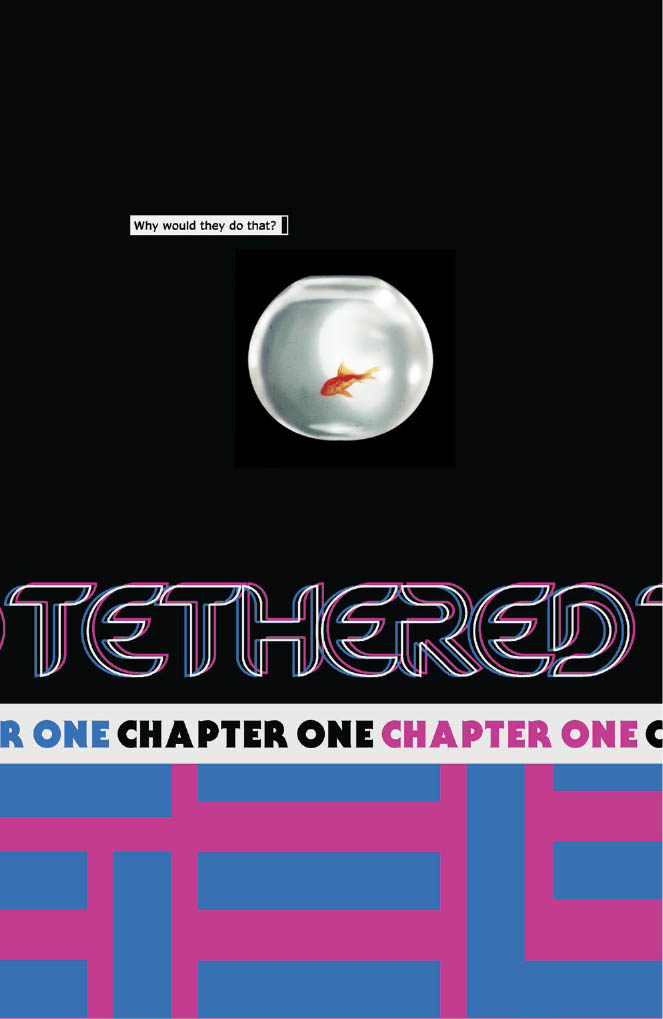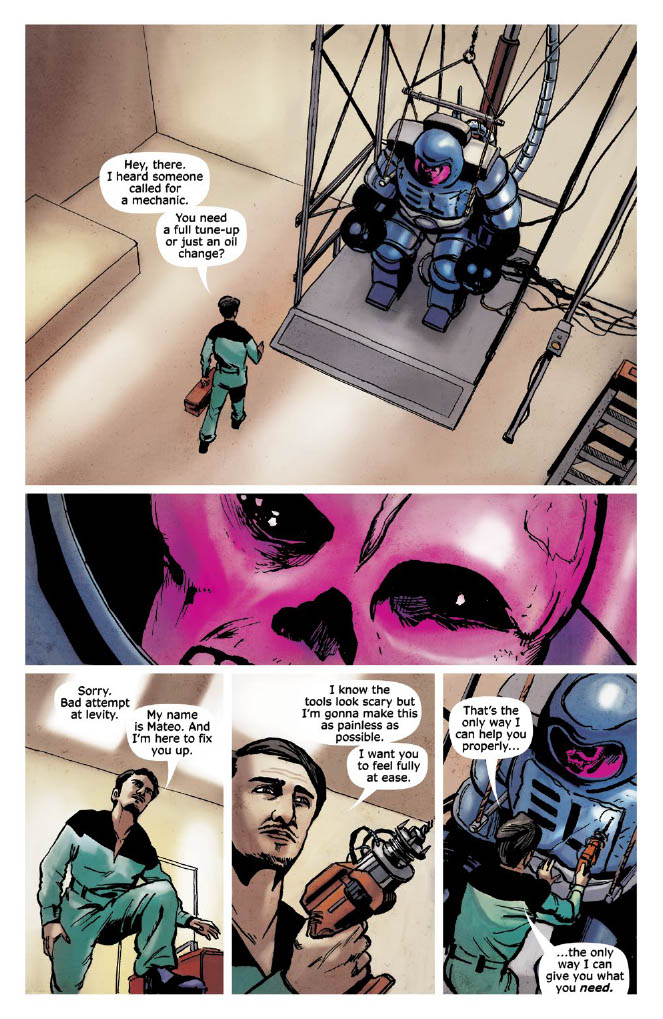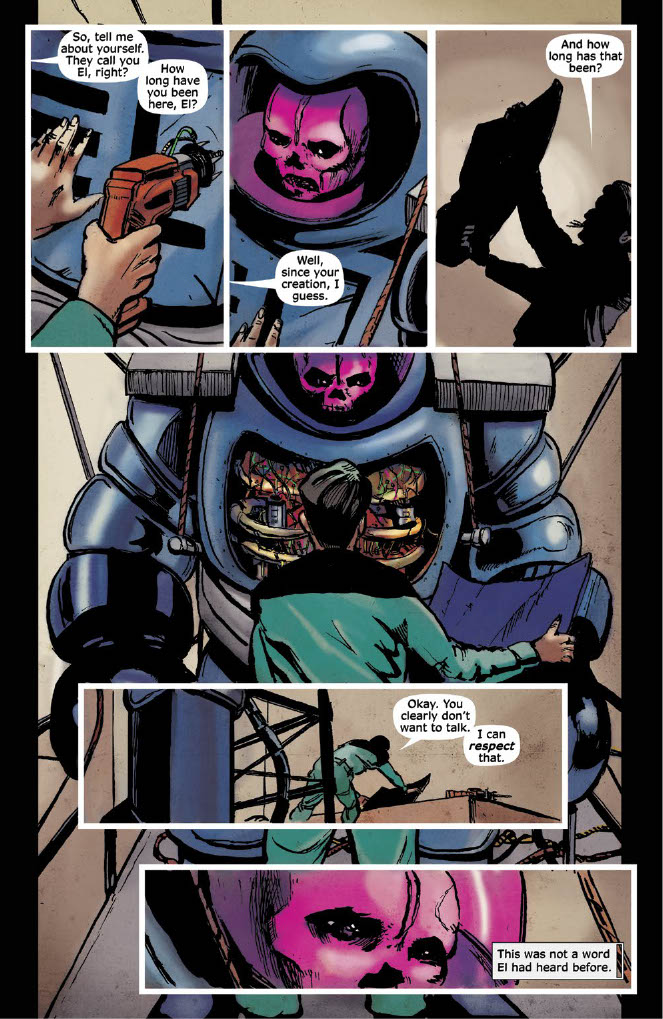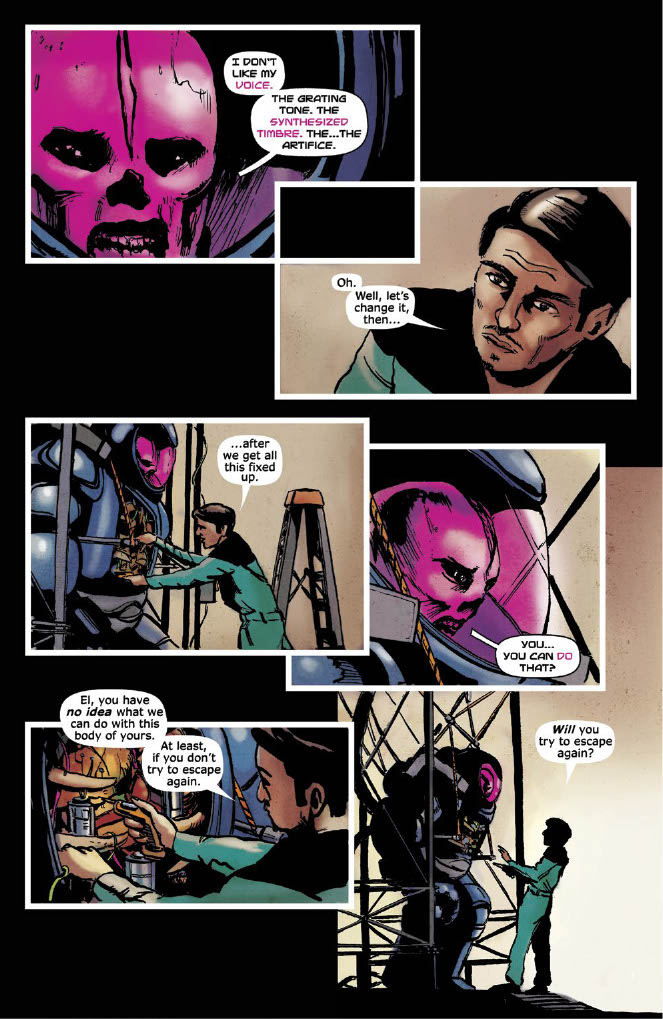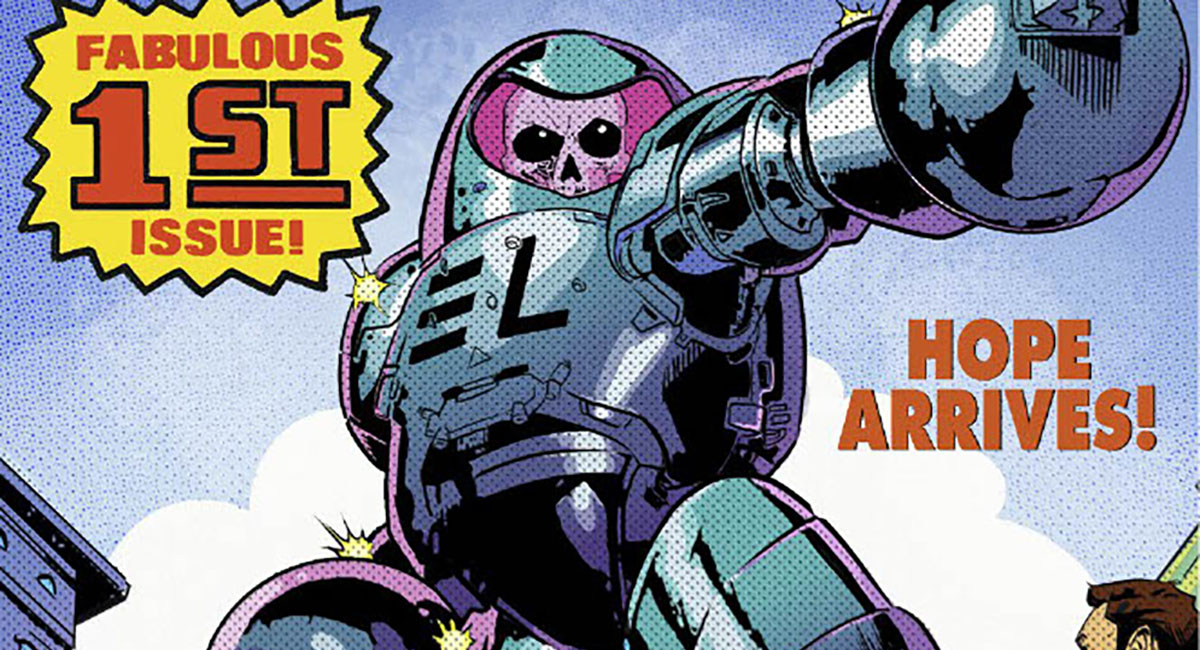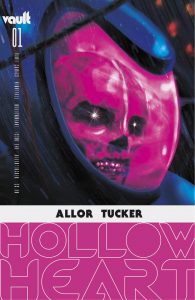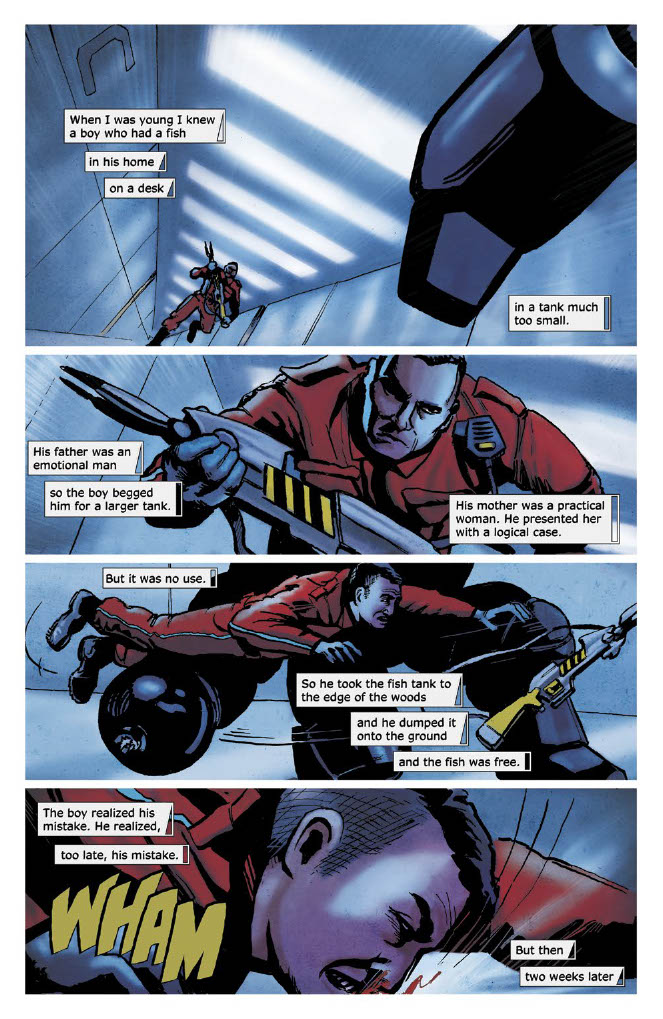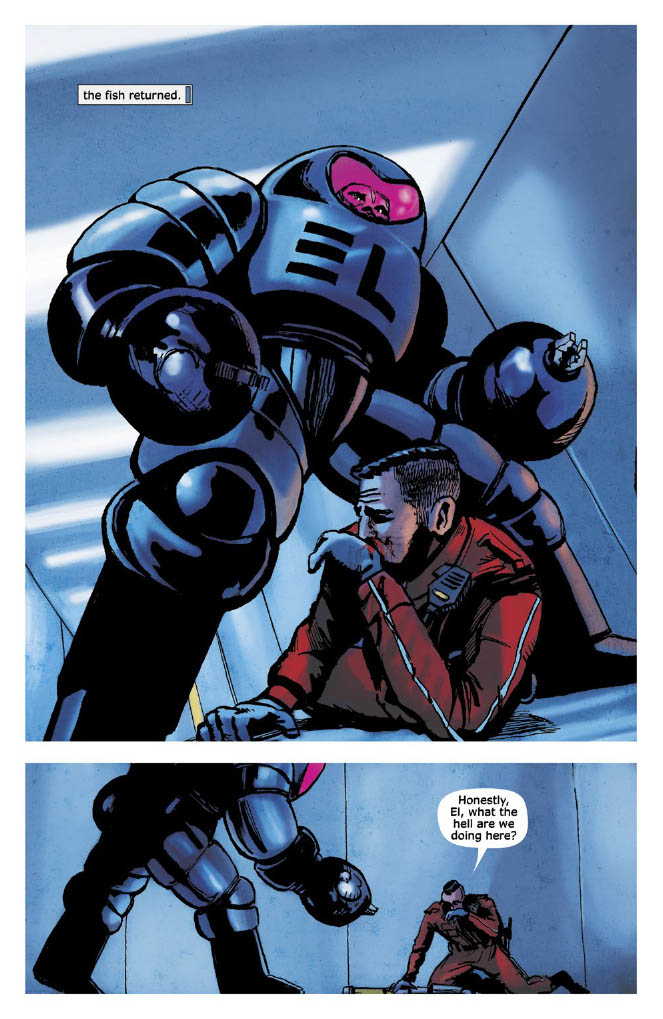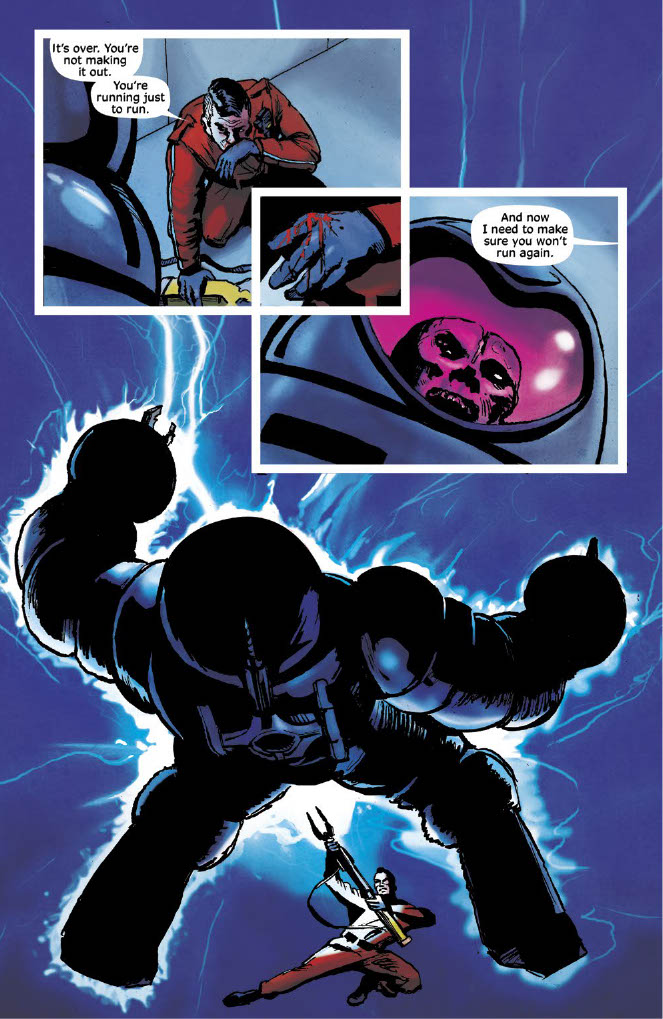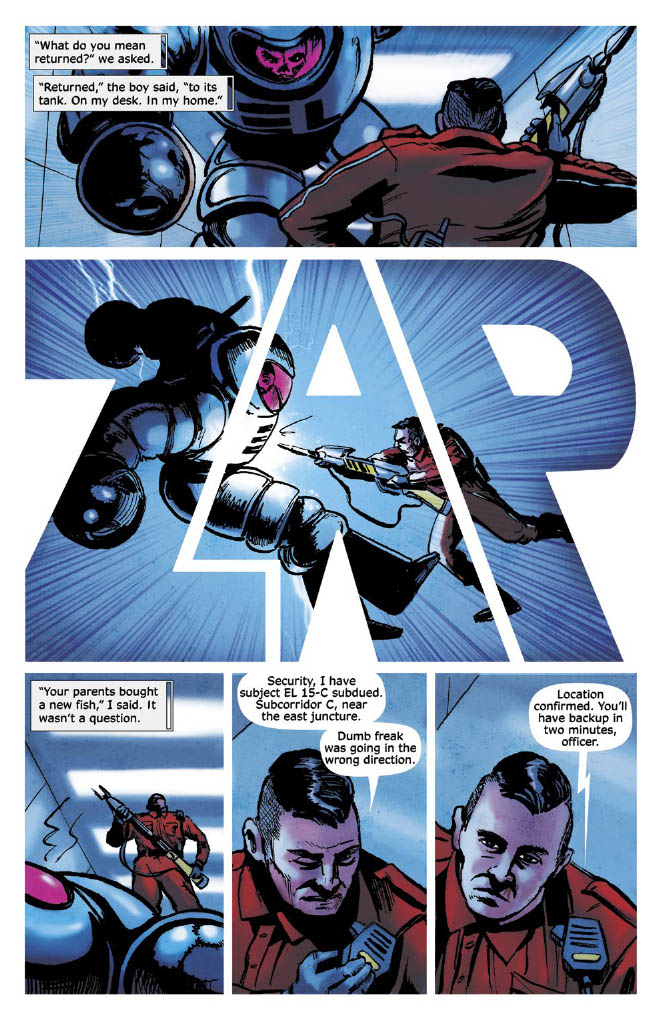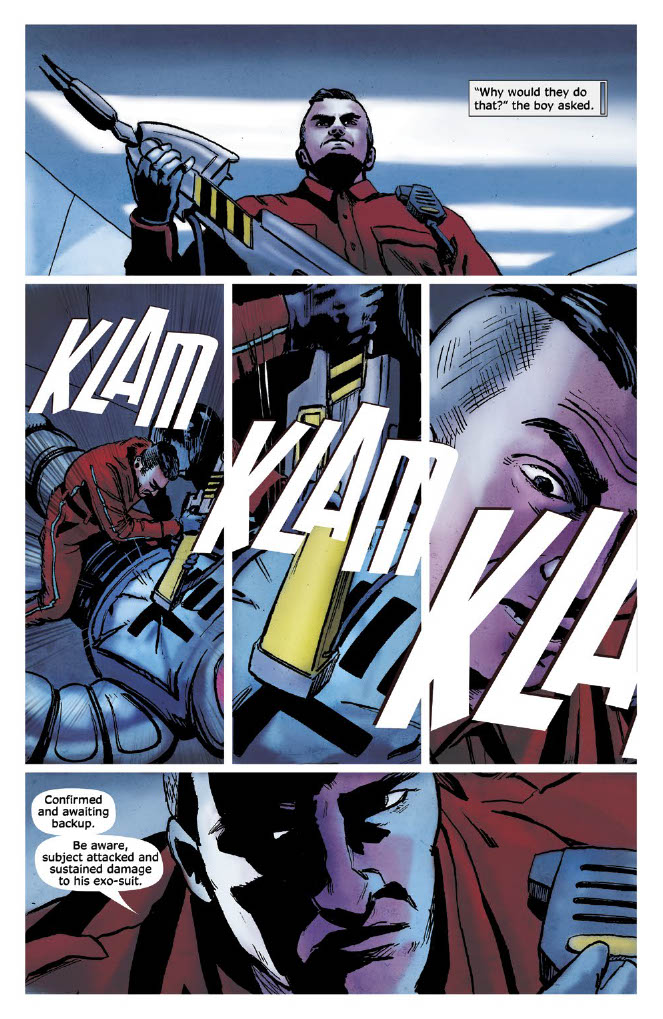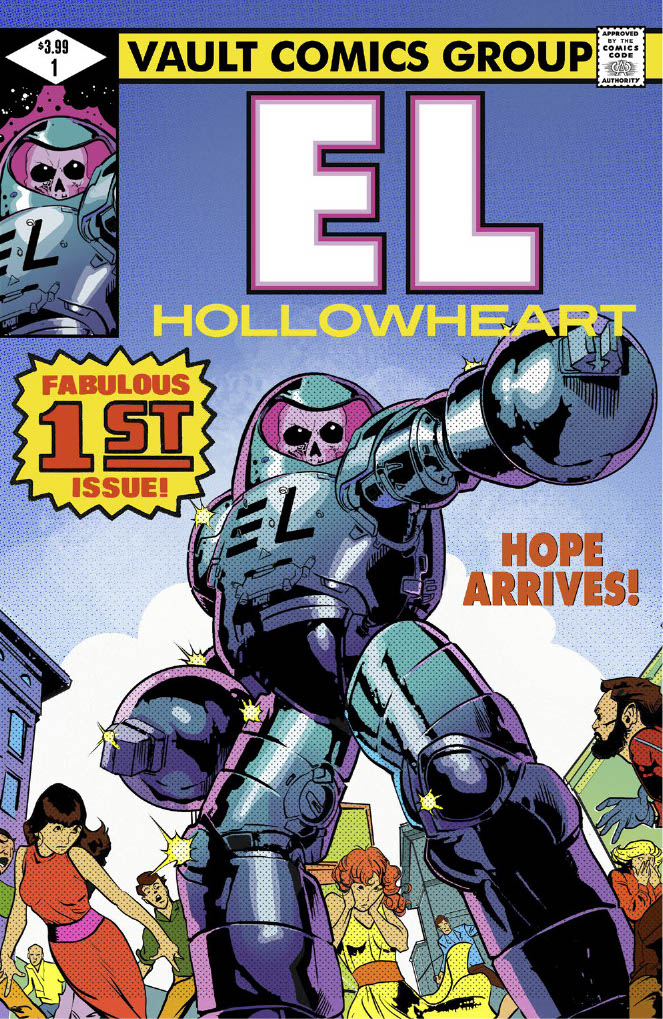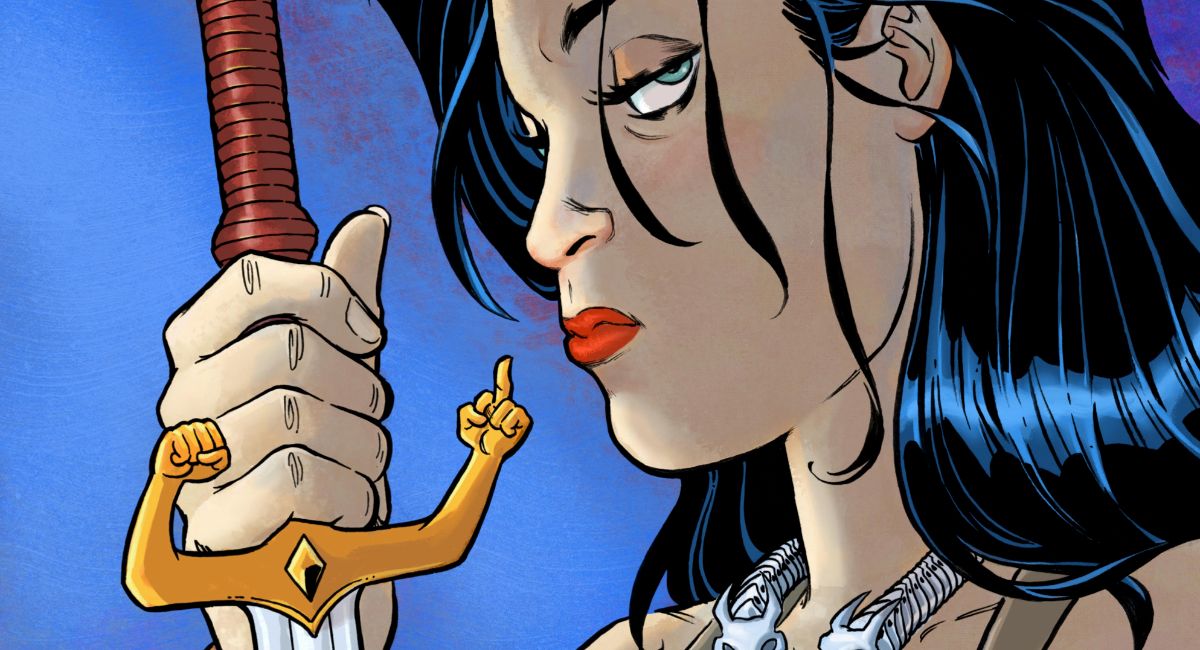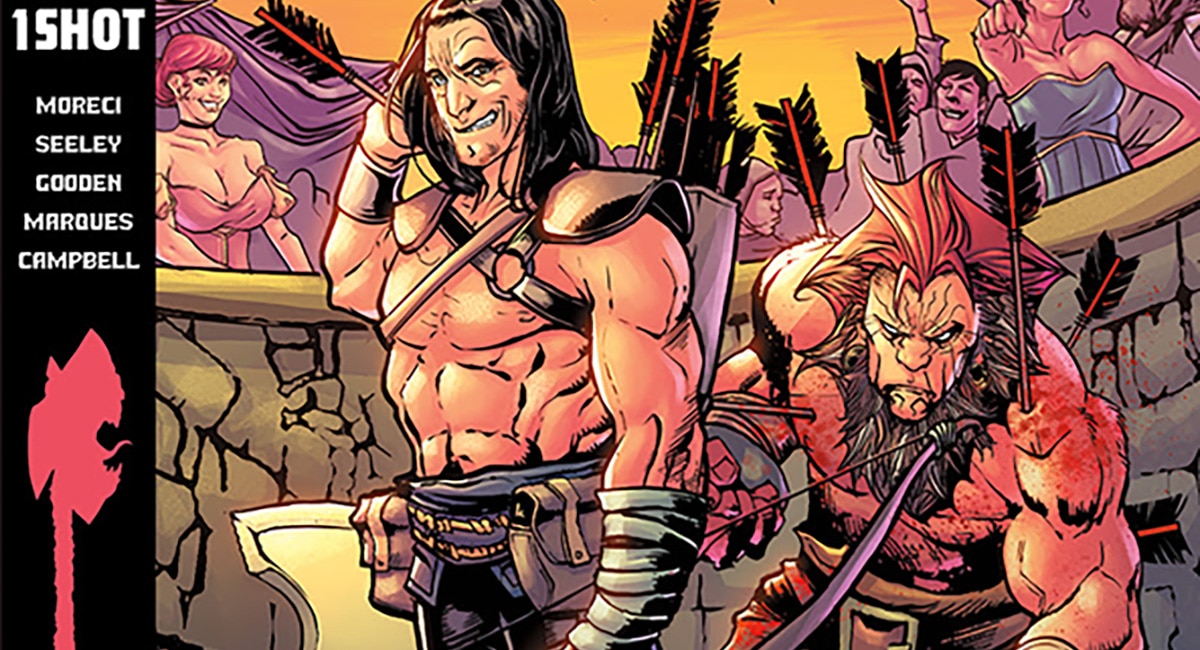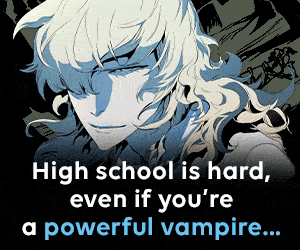Empathy and choice are two concepts that people face in varying degrees every day. How we handle each and the repercussions of our decisions have an effect, especially when they impact those we care about. In Vault Comics’ upcoming Hollow Heart, the “queer monster love story about the choices we make” takes a deeper look at what happens when we must decide between “giving our loved ones what they want and giving them what we think they need.”
The series is brought to you by writer/letterer Paul Allor (Guardians of the Galaxy, Teenage Mutant Ninja Turtles) and artist/cover artist/colorist Paul Tucker (Nobody Is In Control), the same pair behind Tet. Tim Daniel rounds out the team on designs and teams up with Nathan Gooden for a variant cover.
Allor and Tucker chatted with The Beat about the new title and how they tackled the theme of empathy and much more.
Deanna Destito: What inspired Hollow Heart?
Paul Allor: This book was really a collaboration from the start, spinning out of discussions between Paul and I about our mutual interests in psychological horror and sci-fi, genre work that’s extremely focused on character, with the genre conventions serving as scaffolding for that, rather than the other way around.
Paul Tucker: Inspirations for me include modern sci-fi films that are grounded, but also heavily eroticized such as Under the Skin and High Life. Also ‘70s sci-fi greatly informed a lot of my design choices. I love the minimalist uniforms found in movies like Logan’s Run and Star Trek. Beyond film, touchstones include Frankenstein, Polish poster art, and Alex Toth.
Allor: Real talk, for a second there I was like, High Life? Really? Then I realized I was thinking of How High, from Method Man and Redman. That’ll be the inspiration for our next project.
Destito: Empathy plays a huge part in the narrative. What prompted you to explore this theme in this way?
Allor: I feel like a lot of my stories are about empathy, though rarely this directly. But writers do tend to come back to the same themes again and again.
Empathy is generally seen as a good thing, and generally, it absolutely is, but like anything else, it can be misused and even abused. In Hollow Heart, we wanted to explore what happens when someone has an almost preternatural sense of empathy. Mateo collects and carries the burdens of all those around him, and that really warps his view of what is appropriate behavior, of how to help the people around him while also respecting their wishes and boundaries. He strives to give everyone what they need to relieve their burden while disregarding the fact that it might not be what they want — that sometimes, we choose our own burdens because the price of giving them up is simply too high.
Tucker: Empathy is key to how I approach every project. I’m always working towards the moment I feel like I really know a character. It’s hard to pin down how I arrive there. It’s not usually the result of having a full bible of information about their background. It’s usually found in a key moment, where they are made vulnerable. Luckily, these moments pop up a lot in a Paul Allor script.
Destito: The colors are particularly memorable in the first issue. Was that palette deliberate and why?
Tucker: Color is so key for how I approach picture-making. For Hollow Heart, I wanted to use it to heighten the eroticism as much as possible. Early on, the magenta of El’s faceplate became the anchor from which I built the palette out from. Hot pink signifying pain/pleasure is a motif throughout the series and is carried through to the covers and in Tim Daniel’s brilliant design work.
Destito: Why is now a good time to tell this story?
Allor: We’ve been working on this story for a few years now, but it’s definitely coming out at a time when we’ve all just been given a years-long lesson in what happens when people in positions of power suffer from a severe lack of empathy. I think it’s a great time to kind of hold the issue up to the light, and rotate it this way and that, exploring all its many facets, as this book attempts to do.
Tucker: In an unstable world there’s something comforting about using science fiction as a lens for human frailty. I think a story about how we connect or fail to connect will certainly resonate now.
Destito: What other themes can readers expect to see as the narrative progresses?
Allor: Good question! But one I’d rather let the readers decide for themselves, ha!
Tucker: I feel like the world Paul and I have built has a lot of room for introspection. I don’t think we come out and hit anyone over the head with big messages, but there are certainly some threads around relationships, domesticity, and ethics in robotics that we explore.
Destito: Who is your favorite character and why?
Allor: Oh, God, I think it might be Donnie, that psychopathic son of a bitch. My favorite to write, anyway, not my favorite to be in a room with. And as for why, I think it’s because he’s developed in ways I didn’t expect. In our original conception, he had a much smaller, more two-dimensional role, but that’s not how things turned out in the script.
Tucker: I root for Donnie. He is perhaps the most flawed on the surface, but there is something so honest and heartbreaking about him.
Destito: Why does this team work well together?
Allor: We are both named Paul.
Tucker: Paul always brings me stuff that strikes that fine balance of character study and plot while still having some room for a bit of arthouse weirdness. Also, I know he’s always gonna kill it on his end, so his scripts elevate my game as I try to match what he’s putting down. And we’re both named Paul.
Hollow Heart hits comic shop shelves on February 17. Take a look at a few more preview pages below!
